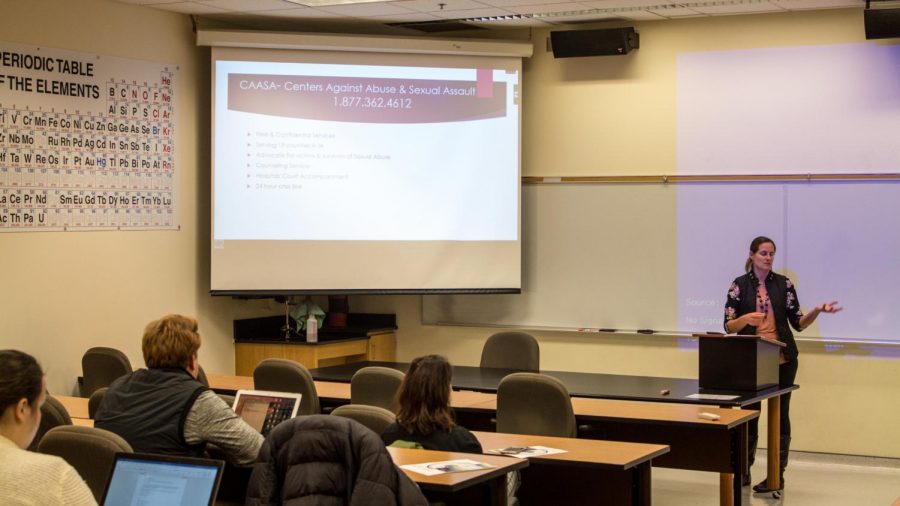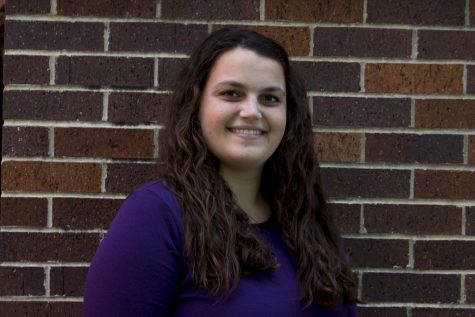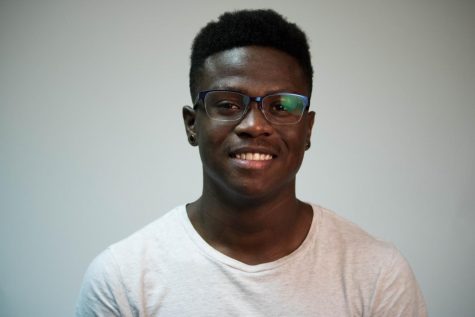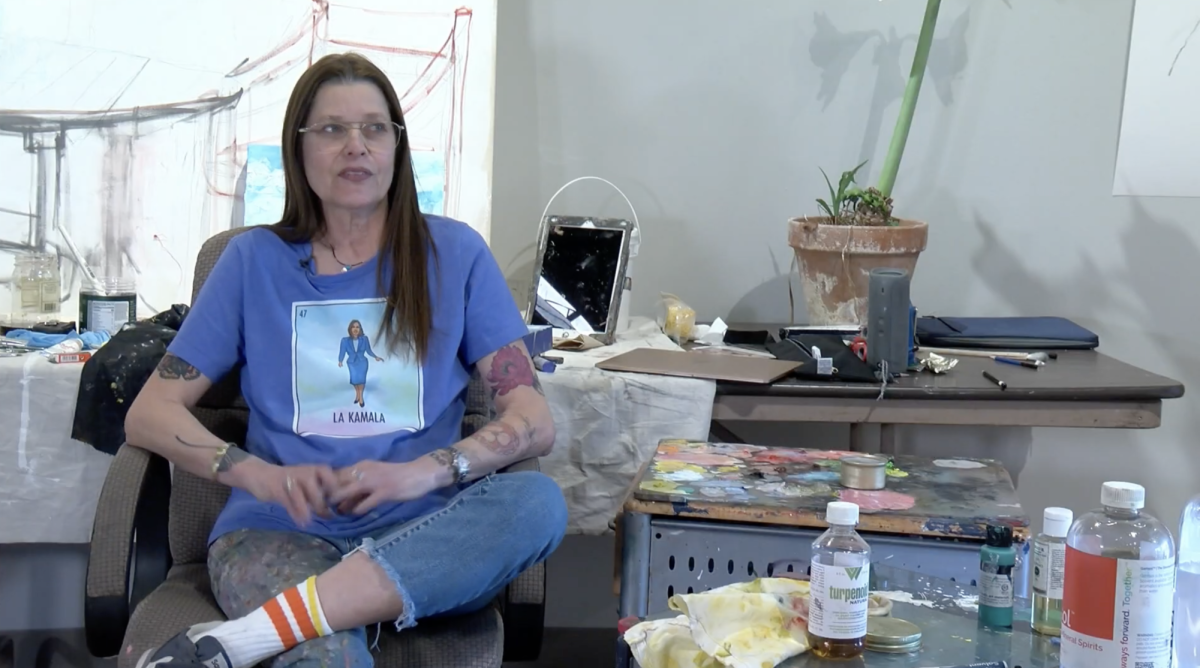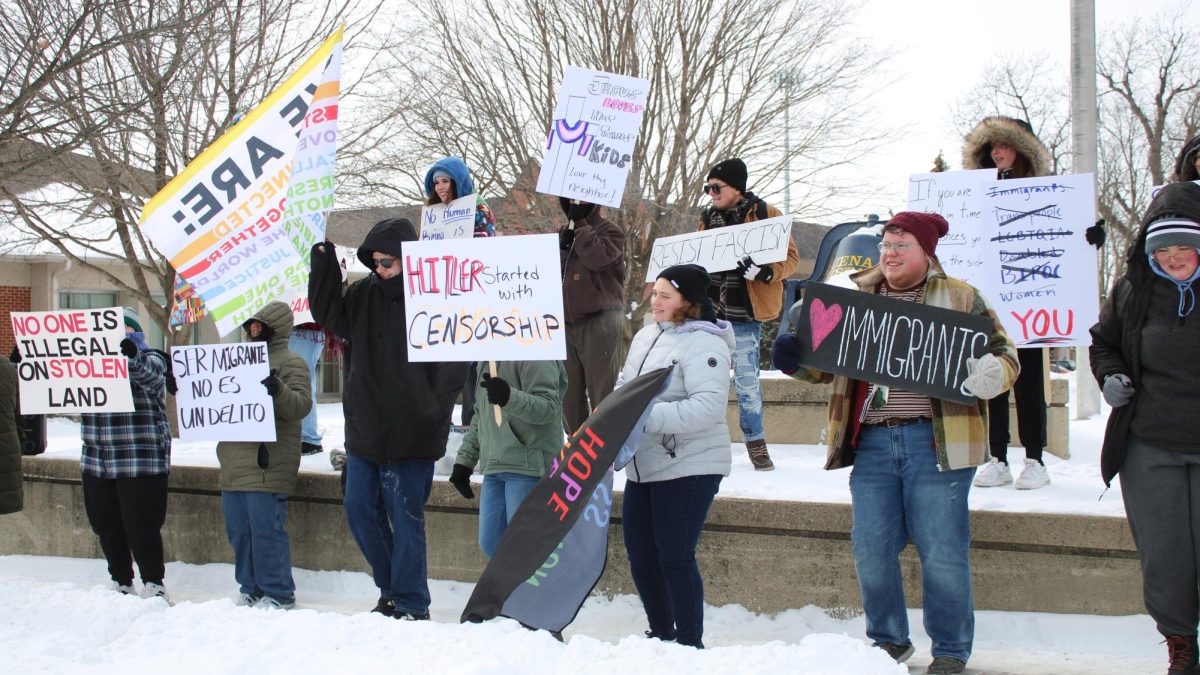BVU hosts Domestic Violence and Sexual Assault Awareness Event with CAASA and FCC
December 7, 2018
Yo Seline Badilla and Jenny Ahlers, representatives from Centers Against Abuse and Sexual Assault (CAASA) and Family Crisis Center (FCC) came to campus to present information about domestic violence and sexual assault to students on Wednesday, Nov. 28. Their goal was to bring attention to the different resources for victims both on and off campus, as well as to provide information about the different forms of domestic violence and sexual assault that are present on college campuses.
Emily Gallagher, BVU’s Title IX coordinator, and Jessica Garling, director of campus security, invited CAASA and FCC to campus as their goal is to bring more awareness to issues such as domestic violence and sexual assault. In addition to that, they hope that by providing students with more information, there can be a discussion in ways to prevent it from happening on the BVU campus and beyond.
CAASA is an organization that offers free confidential services for sexual assault survivors. They are an advocate for victims and survivors, and offer services such as crisis counseling, legal and personal advocacy, and emergency and transitional housing. CAASA also offers a 24-hour crisis hotline and hopes to bring awareness to all different ages.
While most people may have a general understanding of domestic violence is, there are some general misconceptions about it. Domestic violence is defined as a pattern of behaviors used by one partner to maintain power and control over another partner in an intimate relationship. Domestic violence does not discriminate. Domestic violence includes behaviors that physically harm, arouse fear, and prevent a partner from doing what they want to do. Another misconception is that domestic violence is strictly physical acts. Abuse comes in many different forms, and include but are not limited to: physical, verbal, emotional, sexual, digital, financial, and stalking.
It is important that college-age students are made aware of the dangers of sexual assault and domestic violence. Domestic violence is most common among women between the ages of 18 and 24. There is a danger for both men and women, and it is usually men who report less for fear of embarrassment. Statistics show that men do not report as much due to the social stigma, but they are still at risk. 1 in 16 males are sexually assaulted while in college and 1 in 4 men in the United States say they have experienced some form of domestic violence.
Ahlers emphasized the importance of seeing the early red flags of domestic abuse.
“Those are not [actions] that happen on the first date. Abusers are like a snake, they start with a rude comment or put them down. And you are kind of taken back, but they push those boundaries. Physical violence is not what happens at first, it just needs to be a look or gesture for the threat to be there. We see a lot of minimizing, denial, or blame. It’s not just all that at once,” Ahlers exlained.
Gallagher stresses the importance of educating students on campuses about the dangers of sexual assault and domestic violence.
“It is important to understand what [domestic violence] is because a lot of times it’s happening and [students] don’t know. Verbal [abuse] is not okay and people shouldn’t have to deal with. The more they know, the more they can advocate for themselves and then they can reach out. If they don’t know what it is, they then don’t know what support there is,” said Gallagher.
There are many resources that are accessible for students both on and off campus. On campus, there are three sources that are able to keep information confidential: the campus counselor, the campus nurse in Health Services, and the campus chaplain. Everyone else on campus is a mandatory reporter by law and must report knowledge of a sexual misconduct to the campus Title IX Coordinator Emily Gallagher. Students can also go to Campus Security for help. Off campus, students have can reach out to organizations that include but are not limited to: CAASA, Buena Vista Regional Medical Center, the Iowa Victims Service Call Center (texting), the FCC, and the 24-hour National Sexual Assault Hotline.
Gallagher hopes to have CAASA and FCC present on campus regularly in many different forms for students to learn about these topics, as well as more specialized issues such as human trafficking. If students have any other questions about domestic violence, sexual assault, or any concerns they have, Gallagher urges them to stop by her office. She is open to speaking with anyone regarding questions, complaints, or any concerns that are real or even hypothetical so that students are aware of the tools they have before having to make a decision.
Off-Campus Confidential Resources:
Centers Against Abuse and Sexual Assault (CAASA) Storm Lake: 712.732.8120
24-Hour Resources:
CAASA 24-hour crisis line: 877.362.4612
National Sexual Assault Hotline: 1.800.656.4673



